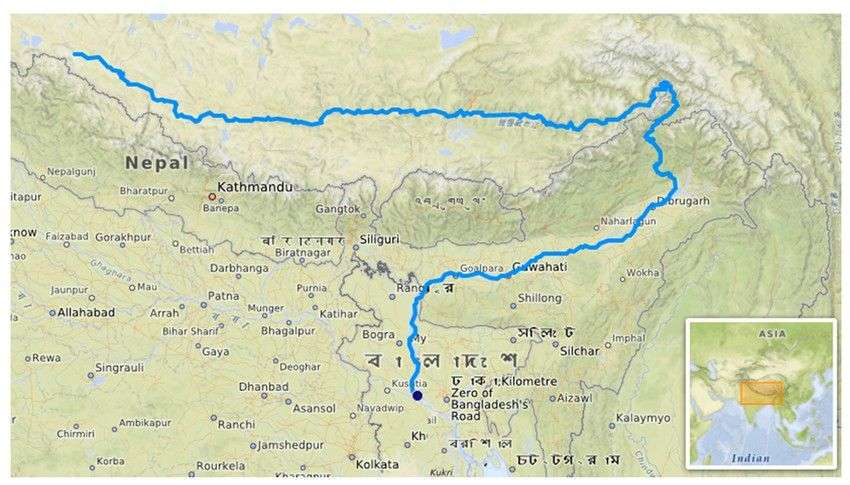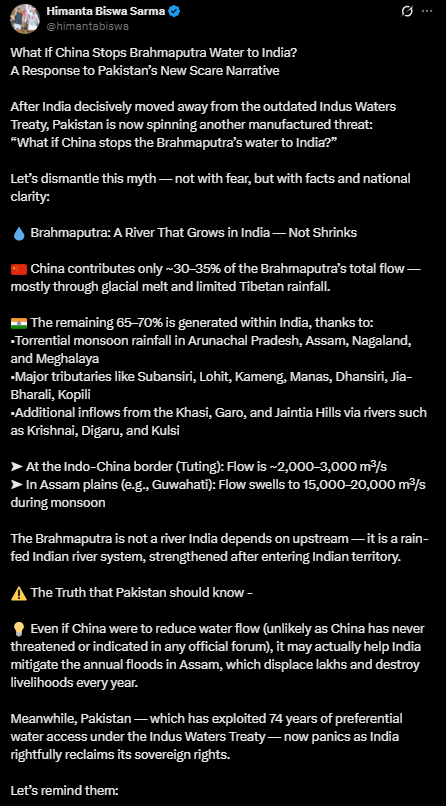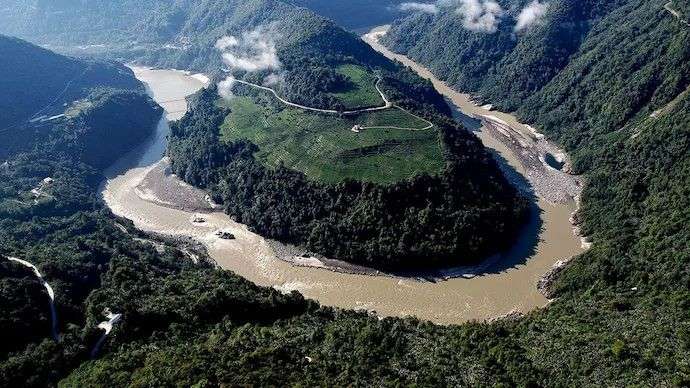The life-sustaining Brahmaputra is a trans-boundary river which flows through Southwestern China, Northeastern India, and Bangladesh. Due to India’s recent move to suspend parts of the Indus Waters Treaty with Pakistan mark a significant strategic shift. Now, Pakistan has come up with a scare tactic, claiming China could stop the Brahmaputra water. Is Beijing seriously considering such a move?

Post-Pahalgam Attack: Pakistan’s Brahmaputra Scare Narrative Emerges
After the 22 April Pahalgam terror attack India decided to suspend flow data sharing and restrict some water access to Pakistan. Despite enduring wars (1965, 1971, Kargil) and relentless cross-border terrorism sponsored by Pakistan, India had honored the Indus Water Treaty for over six decades. But after India’s move as an immediate reaction, Pakistanis have turned to China, hoping China would “punish” India by blocking water from the Brahmaputra River Through its largest project called “Great Bend Dam”. Technically, China could restrict the flow of water. It controls the upper reaches of the Brahmaputra. But on 6th January China has already stated that the dam over the Brahmaputra river will not have any negative impact on India and Bangladesh.

Assam CM’s Data-Driven Rebuttal to the Brahmaputra Narrative
Coming to the recent scenario, on 2nd June 2025, Assam Chief Minister Himanta Biswa Sarma dismantled what he called Pakistan’s “new scare narrative” over China’s control of the Brahmaputra river. He wrote “China contributes only 30-35% of the Brahmaputra’s total flow, citing glacial melt and limited rainfall in Tibet. The remaining 65-70% comes from torrential monsoons and major tributaries within India’s own territory.” so The belief that China would “teach India a lesson” by manipulating water flows reflects Pakistan’s pattern of seeking external powers to settle its scores.

China’s National Interests and the Brahmaputra: Unlikely to Favor Pakistan
However, reality suggests that China acts based on its national interests, not to serve Pakistan’s emotional or strategic compulsions.
As stated above, China controls the upper reaches of the Brahmaputra and can restrict the flow of water, but India’s major water supply is dependent on rivers originating within its own territory, like the Ganga and Godavari. So restricting water flow will eventually not affect India. Instead it will help reduce the floods occurring in the Northeastern states of the country. Hence, comparing India-China water issues to India-Pakistan water conflict is a false equivalence.

